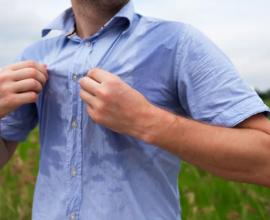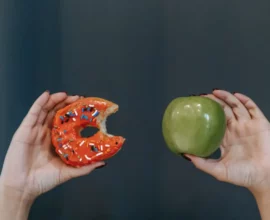As the name suggests, fatty liver disease happens to be a medical condition caused due to an accumulation of fat in the liver. Primarily, there are two categories- one is alcohol-induced, caused due to excess alcohol consumption, and the other one is nonalcoholic, which occurs even if you had never consumed alcohol.
Do you know that nearly 5% of the population in the US suffers due to alcoholic fatty liver disease, and almost 100 U.S. citizens have nonalcoholic fatty liver disease (NAFLD)? Moreover, it’s the commonest liver disease among children. The more extreme form is called nonalcoholic fatty liver steatohepatitis (NASH), which can lead to more acute conditions like cirrhosis and liver cancer.
In this article, we’ve tried to identify what to eat and what to avoid to reverse the liver condition if you have a fatty liver too.
8 Foods to Eat
Experts recommend the following foods, especially for a healthy liver:
Water
A natural resource and easily available, it’s better to stick to this beverage as much as possible compared to sugary and high-calorie alternatives. Someone without any medical conditions that would limit fluid intake should drink at least a half ounce to an ounce of water for each pound of body weight every day to prevent dehydration and its negative effects on the liver.
Vitamin E-Rich Foods
Most reputed doctors recommend sufficient consumption of spinach, red bell peppers, peanuts, and nuts as these types of foods are rich in vitamin E and are beneficial to people with fatty liver. A conclusive study has proved that the consumption of foods rich in Vitamin E has shown modest improvement for people suffering from NAFLD or NASH.
Low-fat Cow’s Milk or Almond Milk
Gastroenterologists suggest that adults and children with fatty liver disease must religiously focus on calcium consumption. There has been some emerging evidence over the last few years, that sufficient intake of vitamin D and calcium may help in the prevention of the development of fatty liver disease. Though more benefits are yet to be established. Additionally, people suffering due to advanced liver disease face problems due to various nutritional complications and can develop early osteopenia and osteoporosis. It isn’t that fatty liver disease necessarily diminishes calcium absorption. You only need to know that calcium is extremely essential for all of us. It’s better to drink at least three glasses of either of these kinds of milk daily.
Coffee
You must be surprised to know that without extra sugar or creamers, presently coffee is considered to be one of the most effective ways to boost fatty liver. It seems that coffee can minimize the permeability of the gut, making it more challenging for people to absorb fats. But for the researchers, this is still under investigation and the total list of benefits is not yet fully known. However, there is growing evidence that coffee has beneficial features in helping to decrease fatty liver disease. Depending on the present condition of a patient, multiple cups of coffee might be recommended.
Olive Oil
Specific oils can provide healthy fats, like avocado oil and olive oil to help with feelings of sufficiency and minimize the levels of liver enzymes. Other types of oil that are very rich in monounsaturated fats are peanuts, sesame, canola, sunflower, and safflower oil.
Garlic
A study suggests that increasing your consumption of garlic, particularly through garlic powder or other forms work, also over 15 weeks causes some kind of reduced body fat mass amongst people suffering from NAFLD and also decreased the fat in the liver, and prevented the advancement of the disease.
Flax and Chia Seeds
These happen to be the plant sources of omega-3 acids. All reputed dieticians recommend these acids for both nonalcoholic and alcoholic fatty liver, as they decrease the fat content in the liver.
Soy
A few pieces of evidence suggest that soy products, like soy milk or tofu, may boost fatty liver. According to a study that research has shown significant developments in the metabolic effect among people diagnosed with NAFLD.
8 Foods to Avoid
Usually, the foods to avoid are those that may increase blood sugar levels, or contribute to weight gain, like the following:
Low Calories Diet Drinks
According to experts, sugar substitutes may lead to more liver damage.
Soda, Juice, and Sugary Beverages
Most dieticians advise their patients to avoid these as they are considered to be the adversaries of the liver. Rather most sugars and carbohydrates are.
Butter and Ghee
These foods are extremely rich in saturated fat, which gastroenterologists feel is associated with high triglycerides in the liver.
Desserts and Other Forms of Sweet Baked Goods
Ice cream, pastries, pies, cakes, etc., are the types of sugary carbs that can foil your chances of reversing fatty liver disease.
Sausage, Bacon, Cured Meats, and Fatty Meats
As these are very rich in saturated fats, no dietician or nutritionist recommends them ever.
Alcohol
Experts don’t suggest this if you suffer due to fatty liver disease that was due to heavy drinking, as it may cause further liver damage. If you suffer from NAFLD, it’s okay to have a drink once in a blue moon, such as a glass of wine.
Salty Foods
Some studies have proved that NAFLD gets deteriorated due to salt consumption. It usually accompanies higher fat and higher calorie foods, like some others on this list, and it may also lead to the dysregulation of the renin-angiotensin system, increasing your risk of fatty liver.
Fried Foods
Fried foods are often rich in calories as well. One needs to follow a more calorie-restricted diet.
Conclusion
Irrespective of the type of fatty liver you have, the best treatment is some modifications in lifestyle, such as avoiding alcohol, losing weight, and consuming a fatty liver diet to cure the liver condition.




